Form It-40 - Indiana Full-Year Resident Individual Income Tax Instruction Booklet - 2011 Page 7
ADVERTISEMENT
Also, enclose:
Indiana allows $1,000 for each exemption claimed on your federal
•
All W-2s and 1099s on which Indiana state and/or county tax
return, plus an additional $1,500 for certain dependent children (see
withholding amounts appear,
instructions on page 24 for more information). If you did not have to
•
Any 1099G showing unemployment compensation, and
file a federal return, you should complete a “sample” federal return to
•
A check/money order, if applicable.
see how many exemptions you are eligible to claim.
A note about your W-2s. It is important that your W-2 form is
If your gross income is less than your total exemptions, you are not
readable. The income and state and county tax amounts withheld are
required to file. However, you may want to file a return to get a refund
verified on every W-2 form that comes in with your tax return. We
of any state and/or county tax withheld by your employer, or other
encourage you to enclose the best copy available when you file.
refundable credits, such as an earned income credit.
Part-year residents and full-year
Who Should File?
nonresidents
You may need to file an Indiana income tax return if:
If you were a part-year resident and received income while you lived in
•
You lived in Indiana and received income, or
Indiana, you must file Indiana Form IT-40PNR, Part-Year Resident or
•
You lived outside Indiana and had any income from Indiana.
Nonresident Individual Income Tax Return.
Note. If you and your spouse file a joint federal tax return, you must
If you were a legal resident of another state (exception: see next
file a joint tax return with Indiana. If you and your spouse file separate
paragraph) and had income from Indiana (except certain interest,
federal tax returns, you must file separate tax returns with Indiana.
dividends, or retirement income), you must file Form IT-40PNR.
There are four types of Indiana tax returns available. The type you need
Full-year residents of Kentucky, Michigan,
to file is generally based on your residency status. Read the following to
Ohio, Pennsylvania or Wisconsin
decide if you are a full-year resident, part-year resident, or nonresident
of Indiana, and which type of return you should file.
If you were a full-year resident of Kentucky, Michigan, Ohio,
Pennsylvania or Wisconsin, and your only income from Indiana was
Full-year residents
from wages, salaries, tips or commissions, then you need to file Form
IT-40RNR, Indiana Reciprocal Nonresident Individual Income Tax
If you were a full-year resident of Indiana and your gross income (the
Return.
total of all your income before deductions) was greater than your total
exemptions, you must file an Indiana tax return.
Deceased taxpayers
Full-year residents must file Form IT-40, Indiana Full-Year Resident
If an individual died during 2011, or died after Dec. 31, 2011, but
Individual Income Tax Return or Form IT-40EZ for Full-Year Indiana
before filing his/her tax return, the executor, administrator or surviving
Resident Filers with No Dependents. If you filed a 2011 federal Form
spouse must file a tax return for the individual if:
1040EZ, were a full-year resident of Indiana, claim only the renter’s
•
The deceased was under the age of 65 and had gross income over
deduction and/or unemployment compensation deduction, and have
$1,000,
only Indiana state and county tax withholding credits, then you should
•
The deceased was age 65 or older and had gross income over
file the simplified Form IT-40EZ. If you are not eligible to file Form
$2,000, or
IT-40EZ, have any add-backs or other deductions or credits, you must
•
The deceased was a nonresident and had gross income from
file Form IT-40.
Indiana.
You are a full-year Indiana resident if you maintain your legal residence
Be sure to enter the month and day of death for the taxpayer or spouse
in Indiana from Jan. 1 – Dec. 31 of the tax year. You do not have to be
in the appropriate box located on Schedule 7. For example, a date of
physically present in Indiana the entire year to be considered a full-year
death of Jan. 9, 2011, would be entered as 01/09/2011. Note. The date
resident. Residents, including military personnel, who leave Indiana for
of death should not be entered here if the individual died after Dec. 31,
a temporary stay, are considered residents during their absence.
2011, but before filing the tax return. The date of death information will
be shown on the individual’s 2012 tax return.
Retired persons spending the winter months in another state may still
be full-year residents if:
Signing the deceased individual’s tax
•
They maintain their legal residence in Indiana and intend to
return
return to Indiana during part of the taxable year,
If a joint return is filed by the surviving spouse, the surviving spouse
•
They retain their Indiana driver’s license,
should sign his or her own name and after the signature write: “Filing
•
They retain their Indiana voting rights, and/or
as Surviving Spouse. ”
•
They claim a homestead deduction on their Indiana home for
property tax purposes.
Page 7
IT-40 Booklet 2011
ADVERTISEMENT
0 votes
Related Articles
Related forms
Related Categories
Parent category: Financial
 1
1 2
2 3
3 4
4 5
5 6
6 7
7 8
8 9
9 10
10 11
11 12
12 13
13 14
14 15
15 16
16 17
17 18
18 19
19 20
20 21
21 22
22 23
23 24
24 25
25 26
26 27
27 28
28 29
29 30
30 31
31 32
32 33
33 34
34 35
35 36
36 37
37 38
38 39
39 40
40 41
41 42
42 43
43 44
44 45
45 46
46 47
47 48
48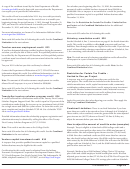 49
49 50
50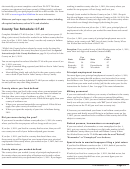 51
51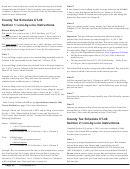 52
52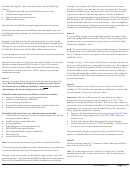 53
53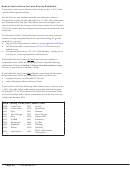 54
54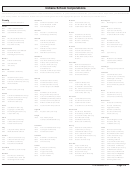 55
55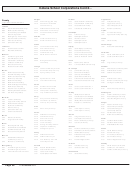 56
56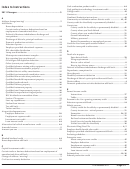 57
57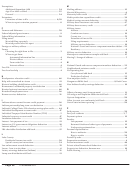 58
58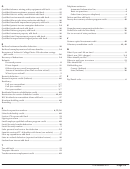 59
59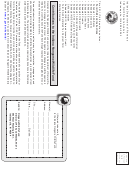 60
60








